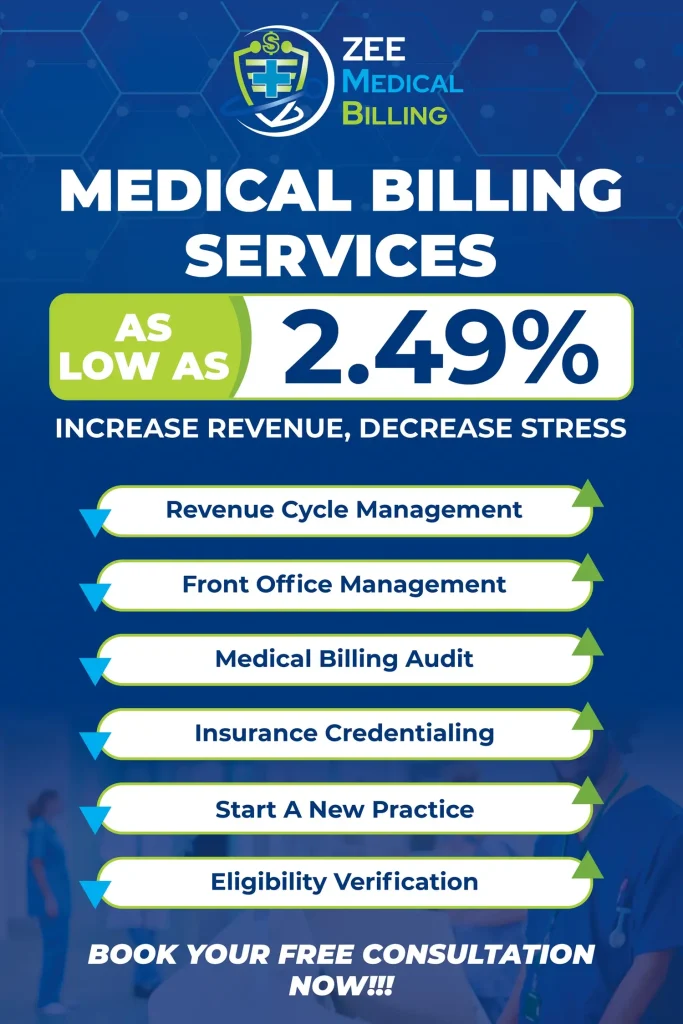Navigating the financial side of behavioral and mental health care feels like trying to decode a foreign language while juggling flaming torches. Insurance companies speak in cryptic codes, regulations change constantly, and documentation requirements seem designed to drain your energy rather than support patient care. That’s exactly why comprehensive behavioral & mental health billing services aren’t just convenient—they’re absolutely critical for practice survival and growth in today’s complex healthcare landscape.
Understanding Behavioral & Mental Health Billing Services
What Sets These Services Apart from General Medical Billing
You might wonder: isn’t medical billing just medical billing? Not even close. Behavioral & mental health billing services operate in a fundamentally different universe from general medical billing. While an orthopedist bills for procedures with straightforward CPT codes and rarely faces questions about medical necessity, mental health providers constantly justify why patients need treatment for conditions that still carry societal stigma.
The billing landscape for behavioral health encompasses unique challenges:
- Session-based services requiring time-based coding accuracy
- Combination services (medication management plus psychotherapy) with complex billing rules
- Add-on codes that significantly impact revenue when properly applied
- Documentation standards that go far beyond typical medical notes
- Insurance scrutiny that questions medical necessity more aggressively
- Parity law provisions that insurers frequently violate despite legal requirements
These differences demand specialized expertise that general medical billing companies simply don’t possess. The nuances make the difference between thriving financially and constantly fighting for appropriate reimbursement.
The Scope of Behavioral and Mental Health Services
Behavioral and mental health services span a wide spectrum:
Outpatient Services: Individual therapy, group counseling, family therapy, medication management, crisis intervention
Intensive Programs: Intensive outpatient programs (IOP), partial hospitalization programs (PHP), day treatment
Specialized Services: Psychological testing, psychiatric evaluations, substance abuse treatment, telehealth services
Integrated Care: Collaborative care management, health and behavior assessment, care coordination
Each service category has distinct CPT codes, documentation requirements, and reimbursement patterns. Professional behavioral & mental health billing services understand these distinctions and ensure appropriate billing across your entire service mix.
ZEE Medical Billing provides comprehensive mental health billing services that address this full spectrum of behavioral health services with specialized expertise.
Why Specialized Billing Services Are Essential
Complex Insurance Requirements
Insurance coverage for behavioral and mental health services varies dramatically between payers and even between plans from the same insurance company. Some policies provide generous mental health benefits with minimal restrictions. Others create barriers through:
- Session limitations regardless of clinical need
- Higher patient cost-sharing than physical health services
- More restrictive definitions of medical necessity
- Aggressive utilization review processes
- Pre-authorization requirements that differ by service type
Navigating these variations without specialized knowledge leads to denied claims, revenue loss, and frustrated patients receiving unexpected bills. Professional services understand payer-specific requirements and verify coverage thoroughly before services are rendered.
Documentation and Medical Necessity Standards
Here’s an uncomfortable truth: “patient felt better” doesn’t satisfy insurance companies. Behavioral health documentation must establish and maintain medical necessity throughout treatment with specific, measurable evidence:
- Objective symptom assessment with severity indicators
- DSM-5 diagnosis with supporting clinical evidence
- Treatment plan with measurable, time-specific goals
- Progress notes documenting specific interventions used
- Objective measures showing patient response to treatment
- Clinical reasoning supporting continued treatment
Documentation deficiencies are the leading cause of mental health claim denials. Even when treatment is medically necessary and clinically appropriate, inadequate documentation triggers denials that require time-consuming appeals.
Parity Law Compliance
The Mental Health Parity and Addiction Equity Act requires insurance companies to cover behavioral health services at levels comparable to physical health services. Despite this legal mandate, parity violations remain common:
- Stricter prior authorization for mental health than physical health
- More aggressive medical necessity reviews
- Lower session limits for behavioral health treatment
- Higher out-of-pocket costs for mental health services
When insurers violate parity laws, effective appeals require specific knowledge of federal and state parity provisions. Professional behavioral & mental health billing services understand these laws and advocate effectively for appropriate coverage.
Core Components of Behavioral & Mental Health Billing Services
Eligibility Verification for Mental Health Benefits
Revenue starts with knowing exactly what’s covered. Comprehensive eligibility verification goes far beyond confirming active insurance coverage. It identifies:
- Specific mental health and substance abuse benefits
- Covered services and excluded treatments
- Session limits and frequency restrictions
- Pre-authorization requirements for planned services
- Copayment, coinsurance, and deductible amounts
- In-network versus out-of-network benefit levels
- Telehealth coverage policies
- Coordination of benefits when multiple insurances exist
Without thorough verification, practices provide services assuming coverage only to discover afterward that benefits don’t exist or require authorizations that weren’t obtained. These scenarios create uncollectible patient balances and damaged relationships.
Upfront assistance services handle verification systematically before appointments, preventing surprises and ensuring transparent financial communication from the beginning.
Revenue Cycle Management
From Patient Registration to Final Payment
Comprehensive revenue cycle management optimizes every stage of the revenue cycle:
Front-End: Patient registration with complete demographic and insurance information, eligibility verification, authorization obtaining, financial counseling about patient responsibility
Mid-Cycle: Accurate charge capture for all services provided, appropriate CPT code selection with required modifiers, claim scrubbing to catch errors before submission, electronic claim submission to payers
Back-End: Payment posting with attention to underpayments, denial analysis and systematic resolution, patient statement generation and collections, detailed reporting on financial performance
Each stage impacts the next. Weakness anywhere creates revenue leakage. Professional services excel at all stages, creating seamless flow from service delivery to collected payment. As detailed in resources about improving practice cash flow, comprehensive revenue cycle management transforms administrative chaos into predictable revenue.
Medical Billing Audits
How confident are you that your billing operation captures maximum appropriate reimbursement while maintaining full compliance? Without regular medical billing audits, you’re operating on assumptions rather than facts.
Comprehensive audits examine:
- Coding accuracy: Are CPT codes appropriate for services documented?
- Documentation adequacy: Do clinical notes support codes billed?
- Charge capture completeness: Are all billable services actually billed?
- Denial patterns: What systematic issues cause repeated denials?
- Compliance risks: Are there practices that could trigger payer audits?
- Revenue opportunities: Where is money being left on the table?
External audits provide objective assessment that internal reviews consistently miss. They identify specific, actionable improvements that directly increase collections while reducing compliance exposure.
Front Office Management Services
Your front office creates the first financial impression and captures critical information that impacts billing success. Integrated front office management services connect patient intake with billing operations:
- Accurate demographic and insurance information collection
- Real-time eligibility verification during scheduling
- Authorization obtaining before appointments when required
- Clear financial communication about patient responsibility
- Copayment collection at time of service
- Coordination between clinical staff and billing team
When front office and billing operations work cohesively, fewer claims are denied for preventable reasons like incorrect patient information or missing authorizations. Patients understand their financial obligations from the beginning, reducing collections issues later.
Upfront Assistance Services
Prevention beats correction every time. Upfront assistance services focus on preventing billing problems before they occur:
- Pre-appointment eligibility verification
- Authorization obtaining for services requiring approval
- Patient financial counseling before services begin
- Payment collection at time of service when appropriate
- Benefit explanation that sets realistic expectations
This proactive approach reduces denials, accelerates cash flow, and improves patient satisfaction by eliminating billing surprises.
Common Challenges in Behavioral and Mental Health Billing
High Denial Rates
Behavioral health practices often experience denial rates of 15-25% or higher—significantly above the 5-10% typical in other specialties. Common denial reasons include:
- Insufficient documentation of medical necessity
- Services not covered under patient’s specific plan
- Missing or expired pre-authorizations
- Incorrect coding or modifier usage
- Session limits exceeded
- Timely filing deadlines missed
Each denial represents lost revenue and administrative burden. Without systematic denial management, these losses compound monthly, devastating practice finances.
Pre-Authorization Requirements
Navigating Different Payer Rules
Pre-authorization requirements vary wildly across payers. Some require authorization for initial evaluations; others don’t. Some review every 10 sessions; others authorize 20 or more at once. Some have different requirements for different diagnoses.
Tracking these payer-specific requirements manually becomes impossible as your payer mix grows. Missing an authorization results in complete claim denial—not reduced payment, but zero reimbursement for services already provided in good faith.
Professional billing services maintain current authorization requirements across all major payers and systematically obtain necessary approvals before services are rendered.
Coding Complexity
Behavioral health coding involves numerous decision points:
- Which psychotherapy code is appropriate based on session duration?
- Can you bill both E/M and psychotherapy codes for the same session?
- What modifiers are required for specific circumstances?
- How do you code group therapy versus family therapy?
- When can you bill collaborative care codes?
Coding errors lead to either underpayment (when you undercode) or compliance exposure (when you overcode). Professional coders with behavioral health expertise navigate these complexities correctly, maximizing appropriate reimbursement while maintaining full compliance.
Session Limits and Utilization Review
Many insurance plans impose session limits on mental health services—20 sessions per year, 30 sessions per year, or other arbitrary numbers unrelated to clinical need. When patients need ongoing treatment beyond these limits, providers face difficult choices:
- Discontinue treatment prematurely
- Continue treatment without reimbursement
- Navigate utilization review processes that may or may not approve additional sessions
These limitations often violate parity laws when comparable restrictions don’t apply to physical health conditions. Professional billing services understand how to document continued medical necessity and appeal inappropriate denials citing parity provisions.
Best Practices for Behavioral & Mental Health Billing
Comprehensive Documentation Strategies
Documentation isn’t just clinical record-keeping—it’s the foundation of appropriate reimbursement. Best practices include:
Objective Symptom Assessment: Quantify symptoms whenever possible (panic attacks decreased from 8 to 3 per week, PHQ-9 score decreased from 18 to 12)
Specific Interventions: Document exactly what therapeutic techniques were used (cognitive restructuring, exposure therapy, motivational interviewing)
Measurable Goals: Establish specific, measurable treatment objectives with timelines
Progress Measurement: Show objective evidence of progress toward established goals
Medical Necessity: Clearly establish why continued treatment is clinically appropriate
This documentation protects revenue while demonstrating the quality care you provide. Resources on best practices and common pitfalls offer additional guidance on documentation excellence.
Proactive Eligibility Verification
Verify benefits before every appointment, not just at intake. Insurance changes, benefits reset annually, and patients switch plans. Regular reverification catches these changes before they cause denied claims.
Verification should be comprehensive:
- Confirm active coverage
- Verify specific mental health benefits
- Identify authorization requirements
- Check session limits and frequency restrictions
- Determine patient financial responsibility
Strategic Denial Management
Don’t accept denials passively. Systematic denial management includes:
- Prompt denial analysis to identify root causes
- Timely appeals with complete supporting documentation
- Escalation when initial appeals fail
- Pattern identification to prevent recurrence
- Parity law citations for inappropriate mental health denials
Professional services track denial patterns and implement systematic corrections that prevent repeated issues.
Technology Solutions for Mental Health Billing
Integrated Systems and Automation
Technology amplifies human expertise without replacing it. Effective systems provide:
- Integration with popular EHR systems
- Real-time eligibility verification
- Automated authorization tracking with expiration alerts
- Claim scrubbing before submission
- Electronic remittance advice (ERA) for faster payment posting
- Patient portals for transparent billing communication
Real-Time Reporting and Analytics
Visibility into practice finances enables data-driven decisions. Quality reporting includes:
- Key performance indicators (collection rate, denial rate, days in A/R)
- Payer-specific performance metrics
- Aging accounts receivable analysis
- Denial reasons and trends
- Revenue by service type and provider
- Benchmark comparisons against industry standards
These insights reveal where your practice excels and where opportunities exist for improvement.
How Professional Billing Services Improve Practice Cash Flow
Professional behavioral & mental health billing services directly impact cash flow through:
Increased Collections: Practices typically see 15-30% revenue increases from reduced denials and more complete charge capture
Faster Payment: Systematic follow-up and clean claim submission reduce days in accounts receivable
Reduced Write-Offs: Better documentation and effective appeals convert denials into collected revenue
Predictable Revenue: Consistent processes create more stable, predictable cash flow
Time Savings: Providers and staff focus on patient care rather than billing frustrations
These benefits compound over time, creating substantial financial improvement compared to inefficient internal billing or generic services without behavioral health expertise.
Choosing the Right Billing Partner
Key Qualifications to Look For
When evaluating behavioral & mental health billing services, prioritize:
Specialty Expertise: Demonstrated experience with behavioral and mental health practices specifically
Comprehensive Services: End-to-end revenue cycle management, not just claim submission
Technology Platform: Advanced systems with integration capabilities and detailed reporting
Transparent Communication: Regular updates and accessible support
Proven Results: Documented track record of improved collections and reduced denials
Compliance Knowledge: Current understanding of parity laws and regulatory requirements
Questions to Ask Potential Partners
- How many behavioral health practices do you currently serve?
- What’s your average collection rate for mental health services?
- What percentage of claims are denied initially, and what’s your appeal success rate?
- How do you stay current with parity law requirements and insurance policy changes?
- What reporting will I receive, and how often?
- Can you provide references from similar practices?
- What’s your fee structure, and what services are included?
- How do you handle credentialing and paneling?
- What technology do you use, and does it integrate with my EHR?
- What’s your process for handling urgent billing issues?
Responses reveal whether potential partners truly understand behavioral health billing or are simply claiming expertise to win business.
ZEE Medical Billing’s Comprehensive Approach
ZEE Medical Billing provides specialized mental health billing services combining technical expertise with strategic partnership. Their comprehensive approach includes:
Complete Services: From eligibility verification and upfront assistance through revenue cycle management, front office management, and medical billing audits
Proven Expertise: Track record of increased collections and improved cash flow for behavioral health practices
Advanced Technology: Integrated systems providing real-time visibility into practice finances
Transparent Communication: Regular reporting and responsive support
Their resources on improving cash flow and avoiding common pitfalls demonstrate their commitment to behavioral health practice success.
Conclusion
Behavioral & mental health billing services address unique challenges that general medical billing cannot handle effectively. The complexity of insurance requirements, heightened documentation standards, parity law compliance, and frequent denials demand specialized expertise.
Comprehensive services encompass eligibility verification, complete revenue cycle management, upfront assistance, front office integration, and regular audits that optimize every revenue cycle component.
ZEE Medical Billing exemplifies this comprehensive approach, providing specialized mental health billing services that transform administrative burden into strategic advantage.
Your expertise lies in healing minds and transforming lives. Let billing specialists handle the financial complexities so you can focus entirely on patient care.
FAQs
1. What makes behavioral and mental health billing different from other medical specialties?
Behavioral health billing involves unique complexities: session-based time coding, combination service billing (E/M plus psychotherapy), heightened documentation requirements to establish medical necessity, more aggressive insurance scrutiny, frequent parity law violations, and specialized CPT codes with specific modifiers. These differences demand expertise that general medical billing doesn’t provide.
2. How can billing services help with insurance denials for mental health claims?
Professional services reduce denials through proactive measures (thorough eligibility verification, proper authorization obtaining, complete documentation) and reactive strategies (systematic denial analysis, comprehensive appeals with supporting clinical documentation, parity law citations when insurers violate coverage requirements, escalation processes for persistent denials).
3. What should I look for in documentation to support mental health billing?
Quality documentation includes: objective symptom assessment with severity indicators, DSM-5 diagnosis with supporting clinical evidence, treatment plan with measurable goals, specific interventions used during sessions, patient response to treatment with objective measures, progress toward established goals, and clinical reasoning supporting continued treatment. Vague generalities don’t satisfy insurance requirements.
4. How do parity laws affect mental health billing?
Parity laws require insurance companies to cover mental health services comparably to physical health services—same cost-sharing, same session limits, same medical necessity standards, same utilization review processes. When insurers apply stricter standards to mental health, effective appeals cite these violations. Professional billing services understand parity provisions and advocate effectively for appropriate coverage.
5. What’s a reasonable collection rate for behavioral health practices?
Healthy behavioral health practices typically collect 95% or more of expected reimbursement after contractual adjustments. Collection rates below 90% indicate significant revenue leakage from denials, undercoding, lack of follow-up, or other systematic issues. Professional billing services routinely achieve collection rates above 95% through comprehensive revenue cycle management.
Follow Us
- Instagram: @zee_medical_billing
- Facebook: ZeeMedicalBilling
- YouTube: Zee Medical Billing Channel
- Twitter/X: @BillingZee
- LinkedIn: Zee Medical Billing Company









